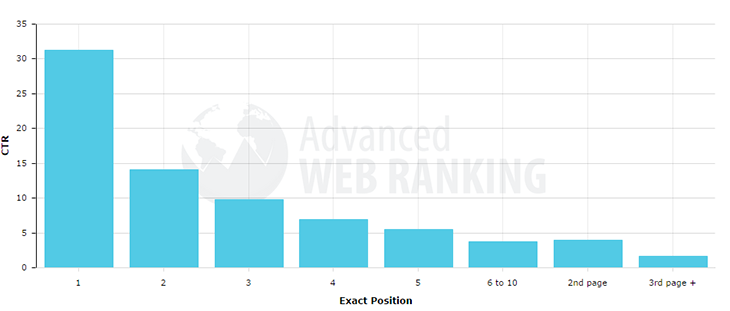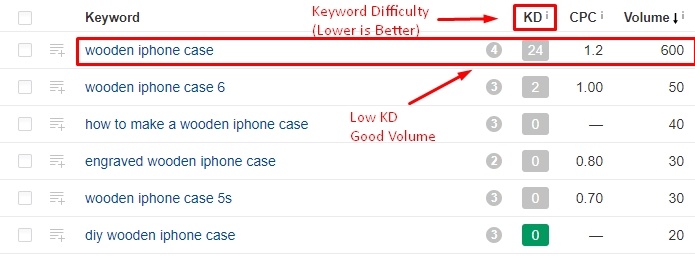
SEO is no walk in the park.
In fact, as far as online marketing is concerned, it’s easily one of the most intimidating disciplines.
High price tags, technical jargon, and esoteric “rules” prevent many ecommerce store owners from even getting their feet wet. If you’re among their ranks, we don’t blame you!
That being said, search engine optimization doesn’t actually have to be as confusing as it often seems.
In fact, you’ll likely see the most benefit from employing only the most fundamental tactics and strategies.
Of course, this won’t be the case if you’re in an extremely competitive niche. But for many ecommerce stores, the bare-essentials will more than suffice to earn better search visibility.
But first, let’s entertain the possibility that you’re unclear on why SEO matters.
Why Do Ecommerce Stores Need SEO?
Many ecommerce store owners start their SEO journey by realizing that simply listing products on their site isn’t enough to get results.
You can have a huge catalogue of products, but without at least optimizing your listings you won’t likely get impressive results.
The reason is simple. The majority of consumers use search engines like Google to help them find the products they’re looking to buy.
Part and parcel to this, is the necessity to rank prominently for keywords that your buyers are using. According to one Moz Study, more than 50% of clicks are earned by the top 3 organic results.

It should be clear then, that higher search rankings are a prerequisite to earning a searcher’s attention.
Perhaps most importantly, if you pick the right keywords to target, your visitors will be qualified leads. This is much more advantageous to ecommerce businesses than traffic earned through display advertisements and the like.
These reasons (and a handful of others) are critical to why SEO is so important.
So, we’ve covered why you should consider adding search optimization to your marketing to-do list. Next, let’s get into how you can go about doing it.
How You Can Earn Higher Rankings
If you’ve ever done even a perfunctory Google search for “how-to” guides, you know that they’re a dime-a-dozen.
Some are great. Some are bad. The majority fall somewhere in between.
Today, we’ll stick to the basics. As we mentioned before, these strategies will likely give you the most bang for your buck.
Keyword Research
Before you do anything else, you’ll want to spend some time researching keywords.
In large part, your success will depend upon the quality of your keyword targets.
While Google has undoubtedly gotten better at understanding semantic relationships, focusing on specific long-tail keywords is still mission critical.
Start by doing some broad research with free tools like Google Keyword Planner and Ubersuggest. For your initial efforts, these should do the trick.
But if you’re picky and need to have the best tools at all times, check out SEMRush, Moz, CanIRank and Ahrefs. These tools can get pricey, but in the right hands they’re worth far more than the price of entry.
Anyways, try to look at keyword research like walking a tightrope.
You want your keywords to have enough volume to be impactful for your sales numbers. But at the same time, you don’t want them to be so competitive that you don’t stand a chance at earning top rankings.

The more competition there is, the harder it will be for you to rank prominently, and the more time, energy and/or money you’ll need to invest to get there.
Another key concept is to identify and target keywords that indicate “buyer intent”.
Let’s illuminate this important concept with an example. Consider the following three keywords:
- “Best laptop 2018”
- “Dell XPS 13 sale”
- “Speed up your laptop”
At first blush, they’re all somewhat similar. But the likelihood of getting a sale from any of these keywords will vary quite a bit.
“Speed up your laptop” is informational. Whoever typed that into Google, is likely looking for a guide, and nothing more.
“Best laptop 2018” means that the user is likely researching products that they’ll consider purchasing. But it’s still anyone’s guess as to where or when (or if) they’ll make a purchase.
“Dell XPS 13 sale” however, is a money-maker. Someone searching this keyword is likely looking to buy that particular item, right now. This is exactly the kind of keyword you want to target for your ecommerce products.
So keep all of this in mind when you’re researching keywords for your first SEO campaign/s.
Pick a few search terms that have good volume, aren’t too competitive, and indicate buyer intent.
On-Page Optimizations
At the most basic level, on-page SEO is the process of optimizing website pages for a few target keywords.
There’s plenty that goes into it. But luckily for all of us, it’s not too complicated.
Here are a few of the most important items you’ll want to cover.
HTTPS
While all 3dcart pages that handle sensitive information are SSL secured, you should strongly consider switching to HTTPS for your entire website.
Google consider this a ranking factor, and it’s a huge trust factor for users.
Optimize Category Pages
Category pages are important to get done right. You’ll want to make sure that both the on-page copy, title tags, and any images all have your keywords included.
Furthermore, if you don’t already, be sure to include some interesting and unique copywriting on your category pages. The more relevant the content the better.
Optimize Product Pages
Of course, it’s also important that product pages get some love too.
It’s most important that you try not to populate your product pages with thin content. Ever since Panda rolled out in 2011, Google has been increasingly hard on sites that don’t have useful or unique content.
So make sure to take the time to add worthwhile information about your products, and don’t skimp on the details.
Also ensure that you have your keywords in the product title tags and meta descriptions as well.
Schema Markup
You’ll also want to make sure that each of your pages is equipped to maximize SERP real-estate.
In order to do so, you’ll want to employ schema markup.
Link-Building
Link-building probably deserves its own article, or two or three. But let’s try to get the basics down in a few paragraphs.
First and foremost, links are still one of the most important ranking factors to consider.
This has been the case for as long as we can remember, but plenty has changed over the years.
Long gone are the days of private blog networks, and modern businesses have to embrace the idea of quality over quantity.
One of the best ways to earn quality links, is to create valuable and relevant content. Then, share it on social, connect with influencers, and collaborate with industry professionals.
It’s also worth exploring contributing to the larger conversation in your particular industry by connecting with journalists. You can use a tool like HARO to find writers looking for experts.
If your response are picked up, they’ll often be accompanied with a link!

These are just a few of the ways you can go about earning links.
If you’re looking to go down the rabbit hole, here’s a more comprehensive link-building guide from the folks at Moz.
Anything Else?
You didn’t really think it would be that easy did you?
If you want to get the most out of ecommerce SEO, you’re going to have to truly put in the time and energy. Additional strategies could include site speed improvements, internal linking, rethinking your URL structures, and leveraging AMP.
Of course, there’s another way as well. You can always hire an SEO agency to handle the heavy-lifting.





Leave a reply or comment below